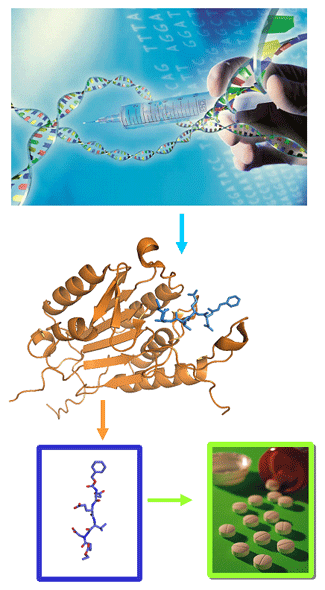The UAB heads a European research project on proteases and pathological processe

The project has already begun and is being carried out by a consortium of research groups from different universities, small and medium sized enterprises, and a large pharmaceutical company. Although under UAB coordination, six other collaborating centres from Germany, Switzerland, Slovenia, United Kingdom and Denmark also work on the project. CAMP forms part of the European Union's Specific Targeted Catering Projects (STREP) and has a duration of three years.
Proteases are enzymes, or proteins that act as catalysts for other proteins when regulating many of the biological processes involved in blood coagulation, food processing, extracellular matrix renewing, etc. Without the regulation of protease activity, numerous pathologies can appear, such as cardiovascular, neuron and autoimmune diseases, inflammations, osteoporosis, arthritis and cancer.
The main objective of the CAMP project is to obtain information on the structure, activity and evolution of the proteases and its inhibitors (molecules that alter their functions) by monitoring their activities in situ and in vivo.
This will then help discover where the proteases that the drugs need to act on can be found. With this aim, the researchers have developed substrates with fluorescent molecules that will be attached to the proteases. This will allow them to monitor the proteases in differents biological systems. The information obtained will then enable scientists to develop specific protease inhibitors.
Collaborating centres:
Universitat Autònoma de Barcelona
Max Planck Institute for Biochemistry (Germany)
European Molecular Biology Laboratory (Germany)
University of Zurich (Switzerland)
Josef Stefan Institute (Slovenia)
ARPIDA AS (Denmark)
Sanofi-Aventis Deutschland GmbH (Germany)
Imperial College London (United Kingdom)
Prince Felipe Research Centre - CIPF (Valencia)
Spanish National Research Council - CSIC (Institute of Molecular Biology of Barcelona - IBMB)
For more information:
http://bioinf.uab.es/camp/
http://www.institutoroche.es/genomica.php?op=biotecnologia

